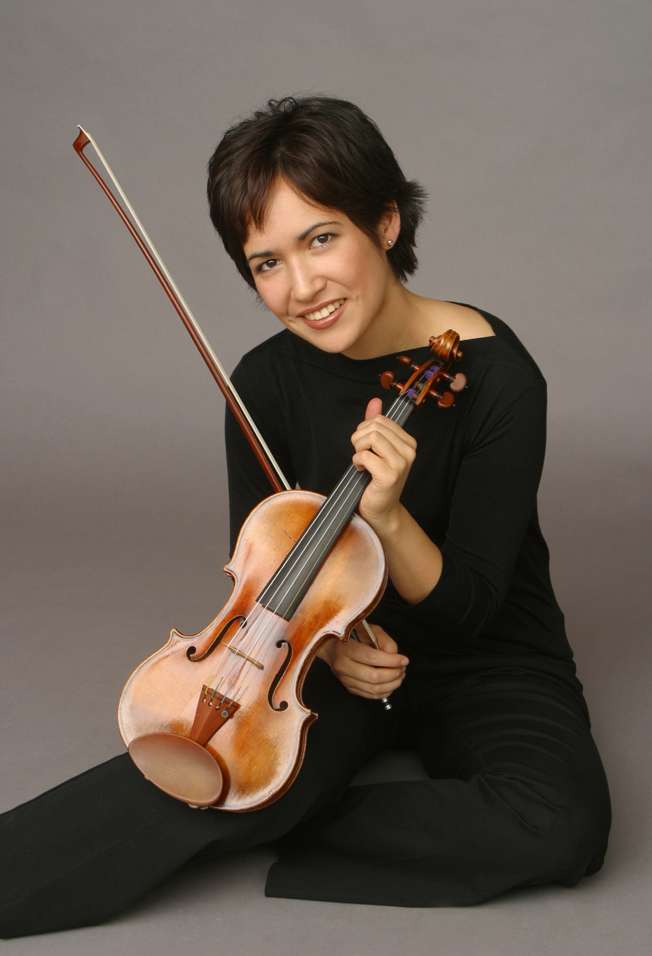|
Back
A cracker Zurich
Tonhalle
09/29/2010 - & September 30*, 2010
Samuel Barber: The School for Scandal, Overture op. 5
Erich Korngold: Violin Concerto op. 35
Johannes Brahms: Symphony No. 1 op. 68
Viviane Hagner (violin)
Tonhalle-Orchester Zürich, David Zinman (conductor)

V. Hagner (© C. Steiner)
American conductors should introduce their native music to foreign audiences and it was therefore pleasing to hear Zinman turn to Barber and Korngold for the first half of this concert.
Barber’s music had its critics in its day. However his style – encompassing lively rhythms, orchestral colouration, melodic gift and direct emotional appeal – remained steadfast no matter what sophistications he later added. This was evident even in the early works such as the Overture to the School for Scandal which he wrote when he was 21. This was not actually an overture in the true sense, as it was not written as a traditional overture to preface a main work, but as a musical reflection of an 18th century comedy by Richard Brinsley Sheridan. It was suitably light-hearted with some particularly fetching themes for cor anglais and clarinet.
Having spent the Second World War composing film music, Korngold’s 1945 Concerto was his first concert piece in years and pressure was on to silence the critics who claimed that he had sold his artistic integrity to Hollywood. Despite the quotes from his film music and the crass Hollywood ending, this concerto goes some way to answer those critics with its romantic lyricism. The young Israeli violinist Viviane Hagner’s reading was suitably wistful and delicate in the Romance and technically brilliant through the swaggering Wild West gallop of the Finale.
The Tonhalle are undertaking a substantial Brahms project: on tour in October in Linz, Vienna, Munich and Lugano they play both Brahms’ piano concertos (with Rudolf Buchbinder and David Zinman) and Brahms’ first and fourth symphonies. The Deutsches Requiem follows in November. This concert featured Brahms’ Symphony No. 1 and a cracker it was. Clearly a great deal of rehearsal time had gone into the work, which was of recording quality. Zinman’s account was muscular, energetic and full-blooded, choosing judicious tempi throughout. The orchestra was on top form, as it will need to be to impress audiences in Austria and Munich. There were notably fine contributions from the orchestra’s Leader, principal oboe, horn and flute – and all the string sections constantly impressed.
John Rhodes
|